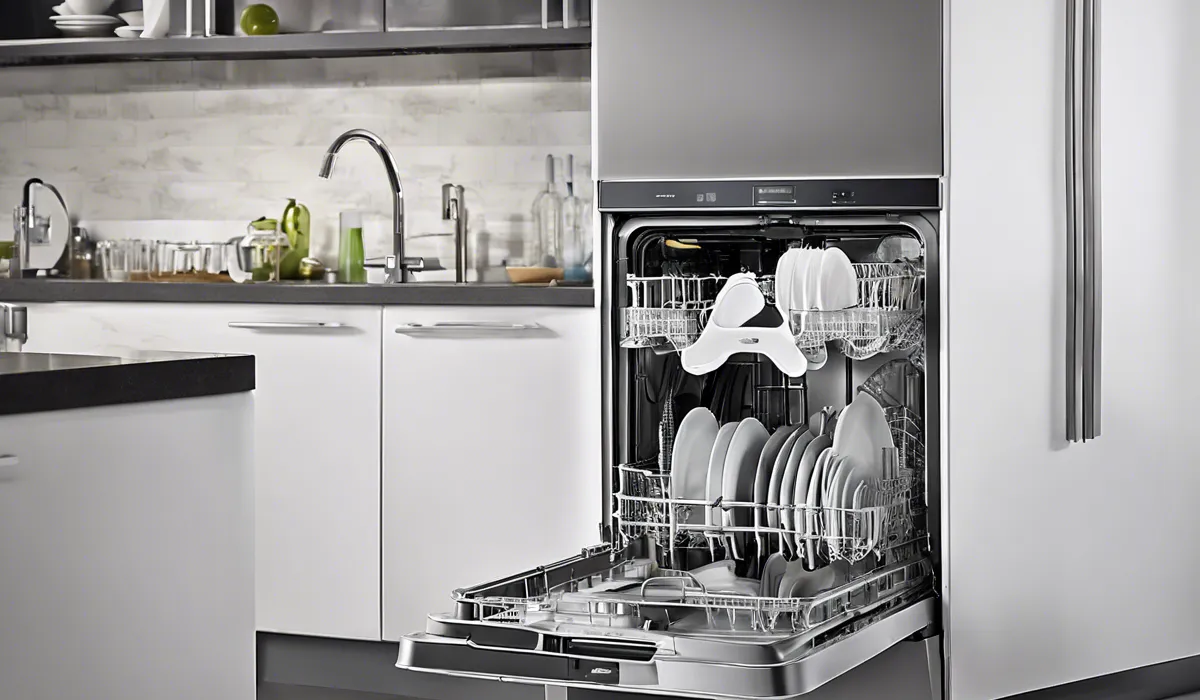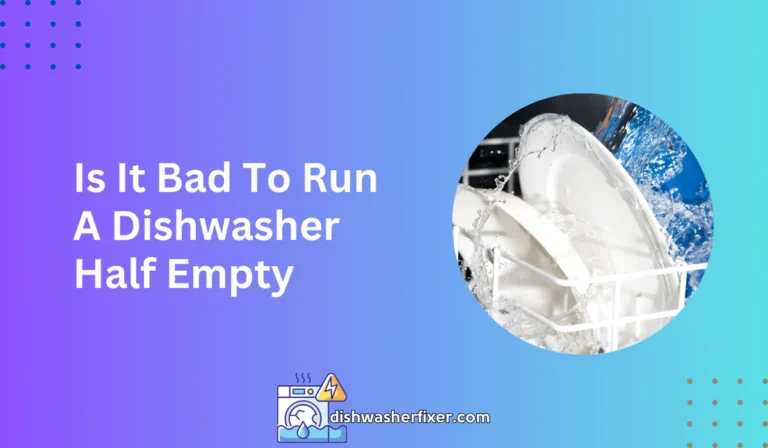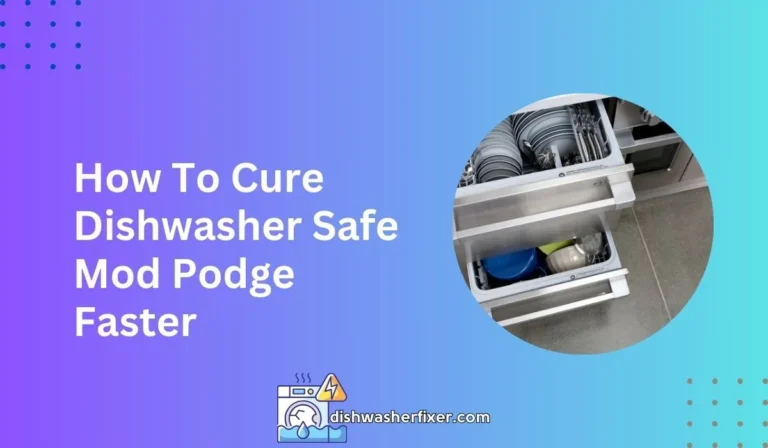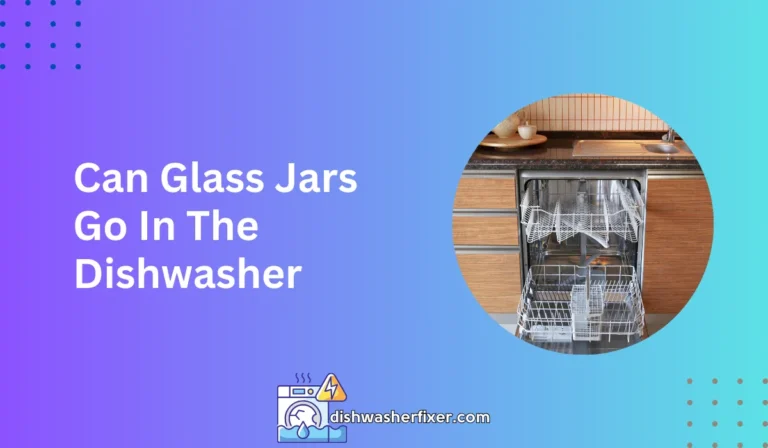Do I Need to Clean My Dishwasher? Hidden Risks & Tips
Yes, cleaning your dishwasher is necessary to remove food debris, prevent mold, and maintain efficiency. Monthly cleaning is recommended. Use a dishwasher-safe cleaning agent or vinegar for a thorough wash.
Understanding the Importance of Cleaning Your Dishwasher

How Dishwashers Work
Dishwashers are designed to simplify the task of cleaning dishes. Water is heated to a suitable temperature and then sprayed onto the dishes through rotating arms.
Detergent is dispensed at the correct stage to break down food residue and grease.
After the wash cycle, the water drains, and a rinse cycle follows to remove any remaining detergent. Lastly, dishes are dried using heat or a fan, depending on the model.
Self-Cleaning Misconceptions
Many people believe that dishwashers are self-cleaning because they regularly have soap and hot water running through them.
However, this is not the case. While dishwashers do a great job at cleaning dishes, they also need regular maintenance to keep them running efficiently.
Impact of Food Debris and Soap Scum
When food particles and soap scum build up over time, they can clog the dishwasher’s filter and spray arms. This leads to reduced water flow and less effective cleaning.
Additionally, these deposits can cause unpleasant odors and become a breeding ground for bacteria and mold.
Benefits of a Clean Dishwasher
Maintaining a clean dishwasher helps ensure that it operates at peak efficiency, conserves energy, and lasts longer.
Dishes come out cleaner, and the risk of mechanical failure is reduced. Moreover, it contributes to a healthier kitchen environment by preventing the growth of mold and bacteria.
Signs That Your Dishwasher Needs Cleaning

Visible Buildup and Stains
If you notice a white residue or rust-like stains inside your dishwasher, it’s a clear sign that it needs cleaning. These are typically caused by hard water minerals or detergent that has not been completely washed away.
Unpleasant Dishwasher Odors
Bad smells coming from your dishwasher are a signal that food particles may be trapped somewhere inside the unit. Regular cleaning is necessary to eliminate these odors and maintain a fresh-smelling kitchen.
Dishwasher Cleaning Performance Issues
If your dishes are not as clean as they used to be, it could mean that your dishwasher’s spray arms or filter are clogged. Cleaning these components can restore the machine’s performance.
Unusual Noises During Operation
Strange noises can be an indication that food debris is obstructing the dishwasher’s moving parts. Removing these obstructions can quiet the dishwasher and prevent damage to the appliance.
Frequency of Use and Cleaning Needs
The more often you use your dishwasher, the more frequently it will need to be cleaned. A busy household might need to clean the dishwasher more often than a single person or couple.
How to Clean Your Dishwasher Effectively

Cleaning the Dishwasher Filter
The filter is crucial for trapping food particles. To clean it, remove the bottom rack, twist out the filter, and rinse it under hot water. Use a soft brush to remove any stuck-on food. Reinstall the filter once it’s clean.
Clearing Out Food Particles and Residue
Check the spray arms for clogs and use a toothpick to clear out the holes. Wipe down the interior of the dishwasher, including the door gasket and detergent dispenser, with a damp cloth to remove any residue.
Removing and Preventing Mold and Mildew
To deal with mold and mildew, run a wash cycle with a cup of white vinegar in a dishwasher-safe container on the top rack. This natural cleaner will help disinfect and deodorize the appliance.
Choosing Cleaning Agents
There are many commercial cleaners designed specifically for dishwashers. Alternatively, you can use a DIY solution of vinegar or baking soda. Ensure whichever product you choose is safe for use in a dishwasher.
Regular Maintenance and Cleaning Schedule
To keep your dishwasher running smoothly, clean it monthly. Wipe down the door, check the filter, and run a cleaning cycle with your chosen cleaning agent.
Staying on top of maintenance will extend the life of your appliance and ensure your dishes are always sparkling clean.
Cleaning your dishwasher is essential to its performance and longevity. Implementing these best practices will not only save you money on repairs but also ensure that your dishes come out clean and hygienic every time.
Regular maintenance is a small task that can lead to significant benefits for your home and health.
FAQs About Cleaning Your Dishwasher
Is it necessary to clean my dishwasher?
Yes, it is necessary to clean your dishwasher to remove food particles, prevent mold growth, and ensure it runs efficiently.
How often should I clean my dishwasher?
Cleaning your dishwasher once a month is recommended to maintain its performance and hygiene.
Can I use vinegar to clean my dishwasher?
Yes, vinegar is a suitable cleaning agent that can be used to clean your dishwasher.
What happens if I don’t clean my dishwasher regularly?
If you don’t clean your dishwasher regularly, it can lead to a buildup of food debris, mold, and decreased efficiency.
What type of cleaning agent should I use for my dishwasher?
Use a dishwasher-safe cleaning agent or home remedies like vinegar for a thorough cleaning.
Final Thoughts
Cleaning your dishwasher is essential to remove food particles, inhibit mold growth, and ensure efficient operation. It is advisable to perform this maintenance task monthly.
For optimal results, you can use a cleaner designed for dishwashers or a natural alternative like vinegar to execute a comprehensive cleaning cycle.





